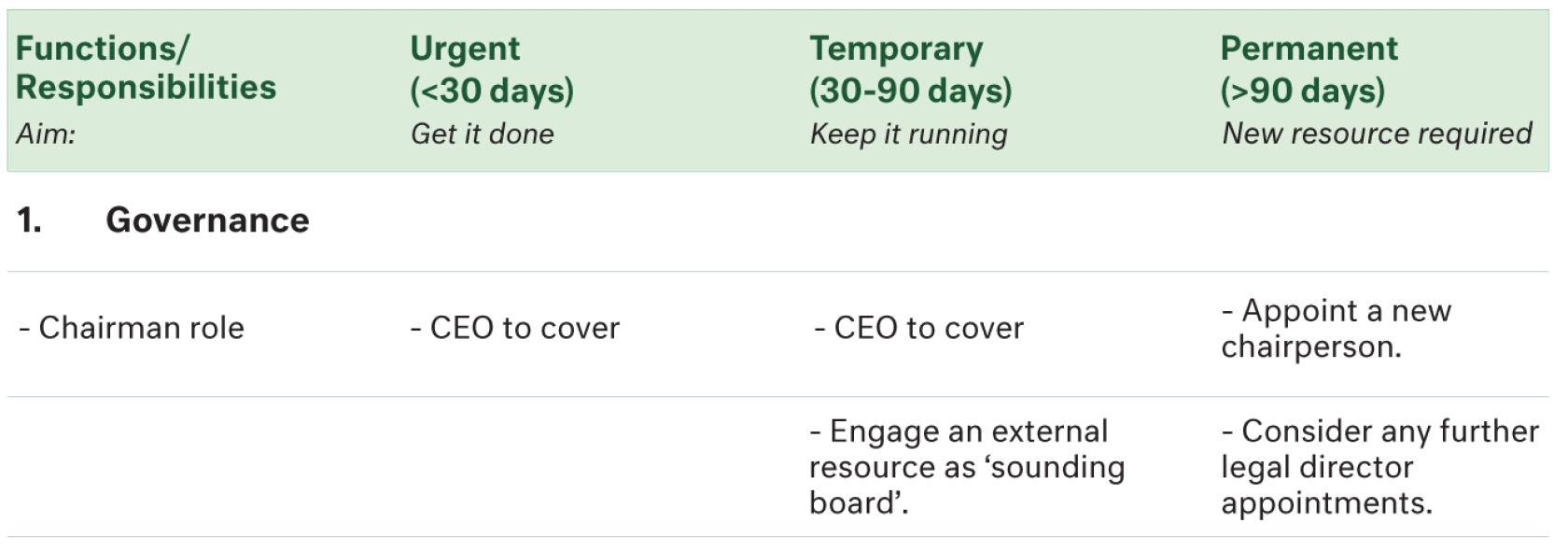Fundamental to this is a Business Continuity Plan (BCP) (which includes a Disaster Recovery Plan). At its core, it is a guiding (but not exhaustive) document that provides management with a framework to manage through a business interruption in whatever form it takes. The ultimate aim is to provide an effective management ‘tool’ to allow management to minimise the impact of any disruption to the business, its customers and its employees.
Having a long background in APRA-regulated funds management and superannuation, the Partners at Cameron Harrison have significant expertise and experience in business continuity planning and helping business owners. It is fundamental to how we conduct Cameron Harrison.
At a minimum, the plan should be based on the below pillars:
Critical issues
Impact
Recovery strategy
Action plan

